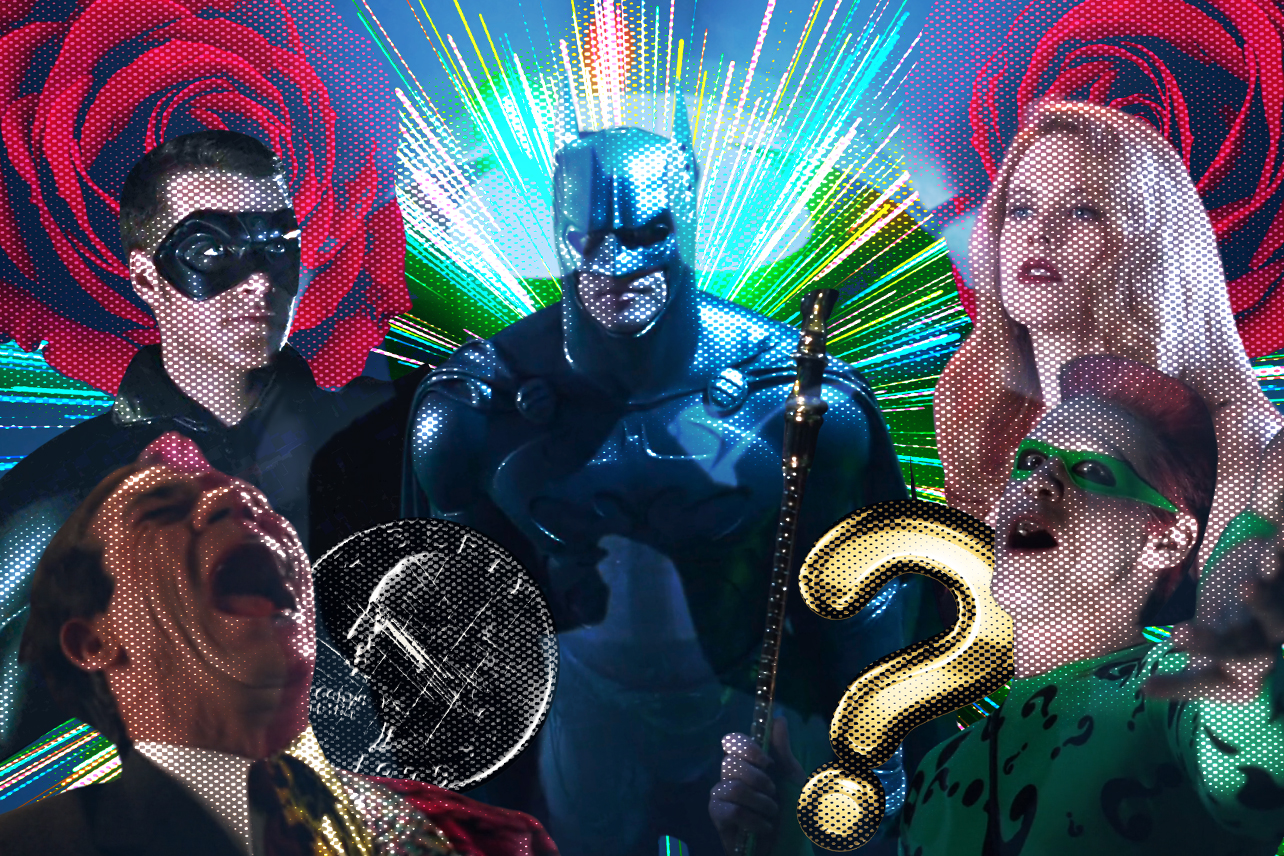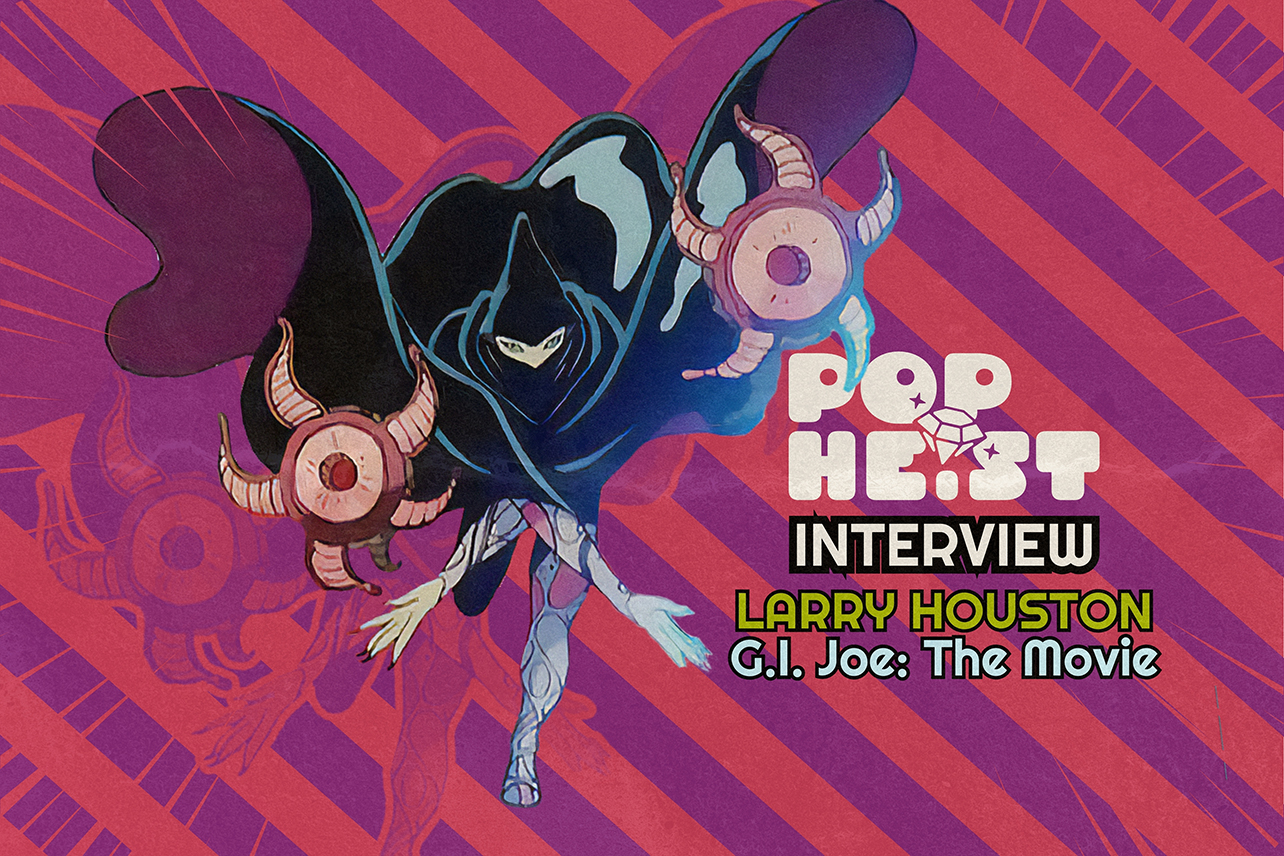When Batman Forever swooped into theatres on June 16, 1995, it marked a rather drastic turn for WB's Dark Knight. The brooding shadows and Gothic dread of Tim Burton's films were gone, replaced by a kaleidoscope of color, kinetic energy, and campy charm. Directed by Joel Schumacher (St Elmo's Fire, The Client), this standalone sequel was a deliberate pivot toward a far lighter, more comic-inspired vision — and for many fans, it still remains a vibrant high point in Batman's cinematic career.
Schumacher, stepping into some seriously large shoes following the massive success of Batman and Batman Returns, brought his own distinct style to the franchise. Drawing inspiration from the zany flare of the 1960s Batman TV show and Dick Sprang's Golden Age comic books, the end result is a Gotham City laced with neon, theatrical character designs, and action sequences that feel as though ripped from the pulpy pages of yesteryear.
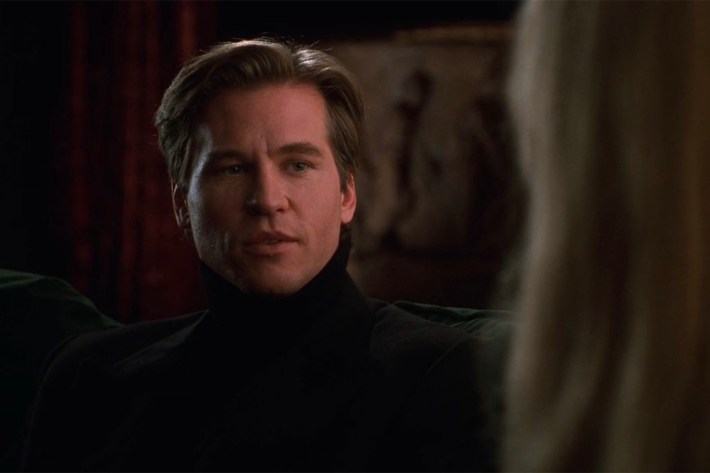
At the heart of Batman Forever beat a compelling new take on the Caped Crusader, one brought to life by the late Val Kilmer. Replacing Michael Keaton, who left the project after feeling the script was too light and comedic when compared to its predecessors, Kilmer managed to bring a brooding elegance to Bruce Wayne while also offering a far more approachable and humanized Batman. His chemistry with co-star Chris O'Donnell, who debuted as the aerobatic sidekick Robin, proved to be one of the film's strongest elements. Their dynamic added emotional depth and camaraderie, offering a new kind of partnership not seen since the small screen antics of Adam West and Burt Ward.

Of course, Batman Forever wouldn't have been the blockbuster it was without the support of its colorful rogues' gallery. While Tommy Lee Jones brought a manic unpredictability to the part of Two-Face, it was Canadian comedian Jim Carrey in the role of The Riddler that truly stole the show. Coming off a string of hits that included Ace Ventura: Pet Detective, Dumb and Dumber, and The Mask, Carrey's electric performance infused Edward Nygma with a twitchy, brainy madness that balanced both charisma and chaos. His riddling antics and wacky wardrobe made him a perfect fit for Schumacher's flamboyant take on Gotham City.
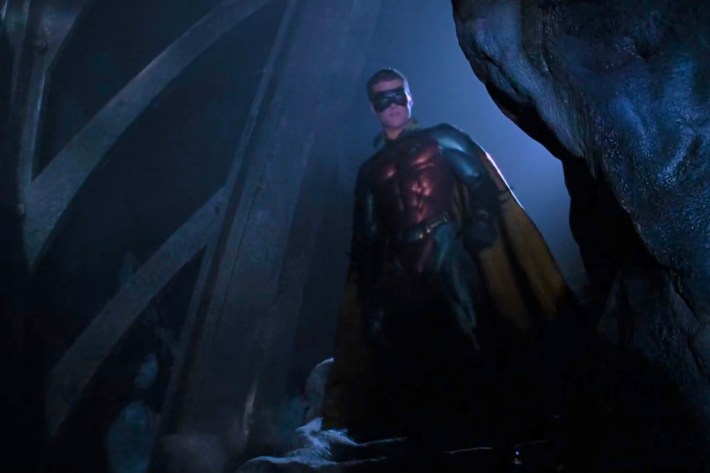
Looking back at Burton's work, it was clear that the lighter tone of Batman Forever was a major gamble — but one that paid off in a big way. Opening on 4,300 screens across the United States and Canada, the film grossed $52.8 million in its opening weekend, $111 million adjusted for inflation, dethroning Steven Spielberg's Jurassic Park for the highest opening-weekend gross of all time. By the end of its theatrical run, Batman Forever had accumulated over $336 million worldwide ($708 million adjusted) and would hold the largest opening weekend record for a Warner Bros. movie until 2001. Audiences embraced the film's colorful world and upbeat energy while its soundtrack, including Seal's chart-topping "Kiss From A Rose," also became a cultural touchstone, cementing the sequel's place in '90s pop culture.
Critics were slightly more divided. While some missed the brooding psychological layers in Burton's films, others applauded the movie's commitment to entertainment and visual splendor. Over time, however, Batman Forever has gained appreciation for what it was: a fun, high-octane adventure that dared to be different and find its own voice.
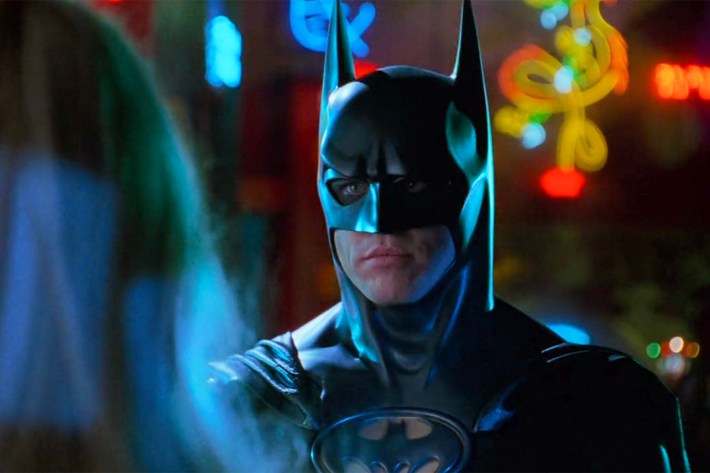
As we reflect on Batman Forever today, the film takes on a far greater significance following the recent passing of Val Kilmer earlier this year. Kilmer's nuanced performance remains a powerful reminder of his versatility and screen presence. In a role often overshadowed by louder personalities, he grounded the film with sincerity and quiet gravitas. Batman Forever stands as a heartfelt chapter in Kilmer's legacy — one that embraced the rich history of the Bat and carved out a bold new path.
Three decades later, Batman Forever still shines brightly — not in darkness, but in the bold, unapologetic brilliance of a Bat-Signal glowing neon.
If you haven't already, consider supporting worker-owned media by subscribing to Pop Heist. We are ad-free and operating outside the algorithm, so all dollars go directly to paying the staff members and writers who make articles like this one possible.
